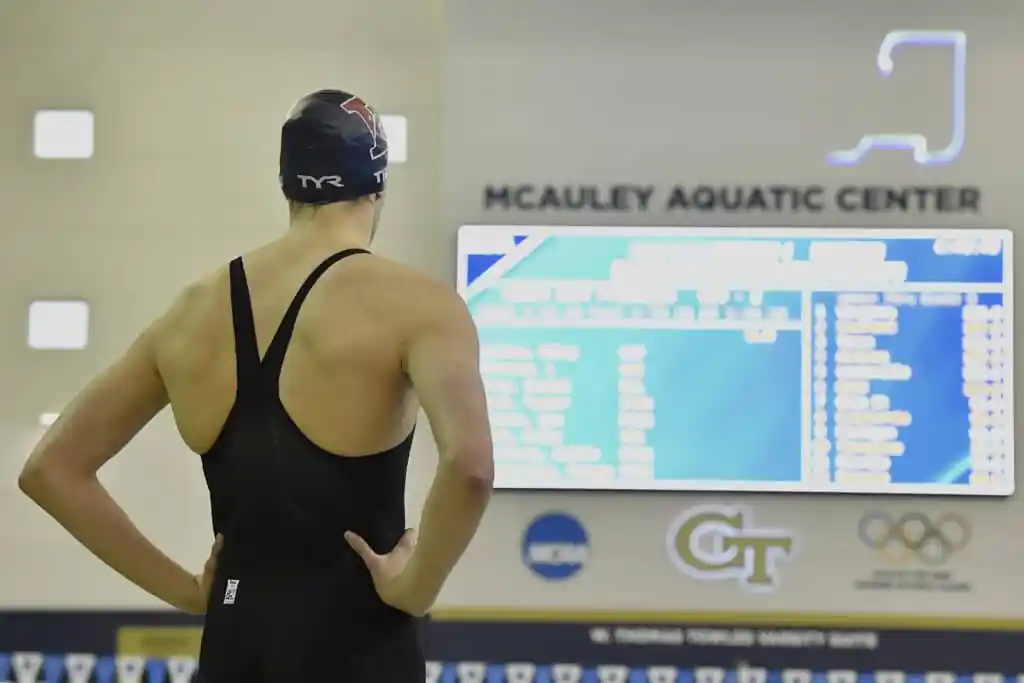Former University of Pennsylvania swimmer Lia Thomas. (Rich von Biberstein/Icon Sportswire via Getty Images)
Trans swimmer Lia Thomas has a simple message for transphobes: Trans women are “not a threat to women’s sports”.
In an interview with ABC on Tuesday (30 May), Thomas, 22, said that trans people don’t transition to win medals in sports competitions – they transition for themselves.
Thomas, who has made waves as a swimmer for the University of Pennslyvania, has seen her success used as a cruel justification to ban trans girls and women from sports altogether.
She expected this. “That’s part of what kept me from transitioning for so long,” she told ABC. “The thing is, I wasn’t sure if I could continue swimming and doing the sport that I love.”
“The mental and emotional changes actually happened very quickly,” she added of transitioning. “I was feeling a lot better mentally, I was less depressed and I lost muscle mass. I became a lot weaker and a lot slower in the water.”
“Trans people don’t transition for athletics,” she continued. “We transition to be happy and authentic and our true selves.

“Trans women are a very small minority of all athletes. The NCAA rules regarding trans women competing in women’s sports have been around for 10-plus years. And we haven’t seen any massive wave of trans women dominating.”
But this simple message has been lost on many Republican lawmakers and right-wing pundits. Nearly 20 US states have enacted laws or issued statewide rules that limit or ban altogether trans people taking part in sports, according to legislative tracker Freedom for All Americans.
“If you say, like, you can compete, but you can’t score or you’re in an extra lane nine, that’s very othering towards trans people,” Thomas said.
“And it is not offering them the same level of respect and opportunity to play and to compete.”
When Thomas won the National Collegiate Athletic Association (NCAA) 500m freestyle title in March, she was six months short of USA Swimming’s rules that trans swimmers must have undergone three years of hormone replacement therapy.
But the NCAA, the national governing body of college sports, bucked the USA Swimming’s rules to allow Thomas to compete.
The American Civil Liberties Union say that most efforts to ban trans women from sports are overwhelmingly based on “harmful” myths. None of which reflect what scientists and experts actually say.
Indeed, when Republican legislators have been asked why banning trans women from sports is needed they often rely on outdated myths or come back empty-handed.
As Thomas bows out of college, the exhausting debate about her identity might have inspired her next career move – law school. Civil rights law, to be exact.
“Having seen such hateful attacks on trans rights through legislation,” Thomas said, “fighting for trans rights and trans equality is something that I’ve become much more passionate about and want to pursue.”
